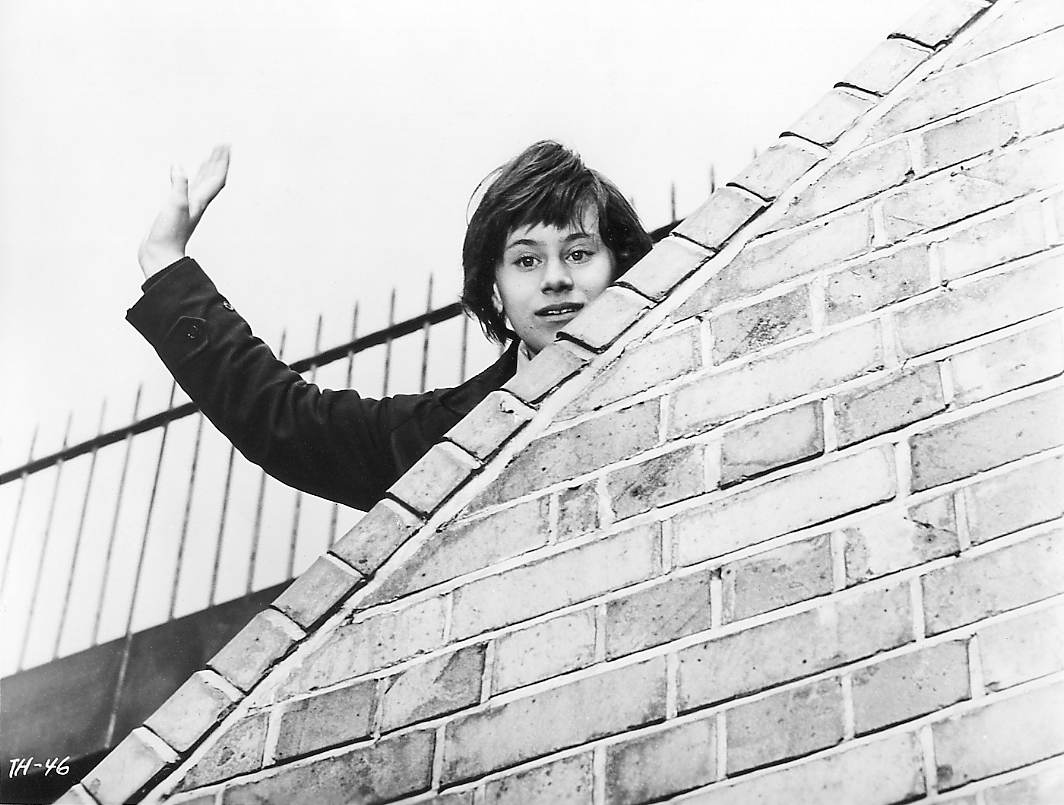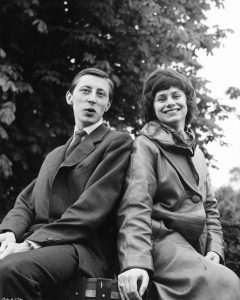
 Dir: Tony Richardson | Writers: Shelagh Delaney, Tony Richardson | Cast: Rita Tushingham, Murray Melvin, Dora Bryan, John Danquah, Robert Stephens | UK | Drama | 101′
Dir: Tony Richardson | Writers: Shelagh Delaney, Tony Richardson | Cast: Rita Tushingham, Murray Melvin, Dora Bryan, John Danquah, Robert Stephens | UK | Drama | 101′
“Kitchen sink drama” is a lazy journalistic term glibly applied to long-ago films like A Taste of Honey. Posh critics in film magazines once spoke of the British New Wave as being inferior to the “Nouvelle Vague.” French cinema was praised for its liberation and spontaneity whilst the Brits where dammed for having too much depressing grit. It’s easy to be disparaging about working class dramas of the early 60’s (the bleakest example is probably A Kind of Loving but no one today mentions the rival optimism displayed in Clive Donner’s Some People).
After the influential “Free Cinema” shorts of the fifties gravitas arrived in the form of A Taste of Honey, Saturday Night and Sunday Morning and This Sporting Life: they are the overseas cinematic children of the Italian neo-realists. The background of these films is not wartime, nor a country suffering from immediate post-war difficulties, but the beginnings of a still repressive, and materially poor decade, prior to huge social changes in British culture. They are immensely moving and involving films: trenchant, angry and authentic expressions of the lives of ordinary people, bearing comparison with the visceral social concern of either a De Sica or Rossellini.
Jo (Rita Tushingham) is a 17 year old Salford schoolgirl, who lives with her mother, Helen (Dora Bryan). Poverty and Helen’s drinking means they’re constantly in debt and moving homes. Jo meets a Black sailor named Jimmy (Paul Danquah) and loses her virginity. 40 year old Helen is dating a younger man, Peter (Robert Stephens). Tension arises between Peter and Jo. When Mother moves out to live with Peter, Jo leaves school, finds a job in a shoe shop, rents a room and discovers that she’s pregnant. A young gay man Geoffrey (Murray Melvin) befriends Jo and moves in to her rooms. The relationships / friendships of Mother and daughter don’t really work out. The future seems uncertain for everyone.
It’s now crazy to think that Audrey Hepburn was the first choice to play the teenage Jo. Could Hepburn (with her Eliza Doolittle cockney role still to come) coached in a Salford accent have made the role as convincing as Tushingham? But should it matter? Under Tony Richardson’s direction Tushingham’s body language, line delivery and facial expressions are perfect. Jo’s face constantly conveys an unfulfilled desire for security and affection (close-ups can be over-used in cinema but in A Taste of Honey they’re exactly judged and telling – the camera falling rightly, though unsentimentally, in love with Tushingham).
A Taste of Honey has further brilliance of casting with Dora Bryan giving a comic-tour de force as a selfish mother who resolutely avoids caricature. Murray Melvin brings deep sensitivity to his role as the mothering friend. Paul Danquah expertly sketches in his brief role as the black sailor who never returns. And Robert Stephens is shrewdly spot-on as the car salesman.
Such characters were not being portrayed in the other British films of 1961. Back then they appeared as outsiders marginalised from the accepted norms of family life; all anxious to have a voice, and articulate their presence. The poignancy of A Taste of Honey is that no one is able to communicate fully their needs. Everyone aspires to a better life; to make sense of their muddled life and move on. Yet sufficient knowledge, education, money, sexual fulfilment and power, within their class, gender and sexuality, are just out of reach.
Richardson’s direction is thoughtful, compassionate and poetic (it’s undoubtedly his finest hour). Walter Lassally provides stunning cinematography. John Addison’s musical arrangements of The Big Ship Sails on The Ally-Ally-Oh are modulated to create a folk ballad. Whilst each carefully shaped performance never makes anyone become a victim – behind potential despair is always a space – cinematically and emotionally – of great resilience. However uncertain the future appears at the bonfire scene climax of A Taste of Honey we have journeyed with hugely sympathetic characters just like you and me. The camera rests on Jo’s face, and her burning sparkler, to create a fleeting moment of peace within the film’s large question mark. In an earlier moment, by a canal, Jo, still so young and unsure about being a mother, yells out: “My usual self is a very unusual self. We’re bloody marvellous!”
And A Taste of Honey is also a bloody marvellous film powerfully decrying earlier moribund theatre and formulaic cinema for being so patronising towards ‘common’ people. In 1961 audiences were shocked, surprised and gradually delighted by its power. Fifty seven years on it still delivers an affecting realism of great concern and sensitivity. Alan Price©2018
NOW OUT ON BLURAY COURTESY OF BFI | 10 December 2010 | along with THE GIRL WITH GREEN EYES